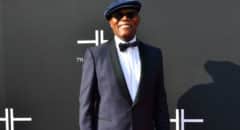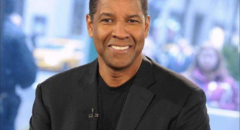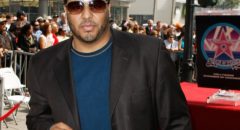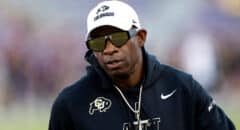
Toni Braxton has always been a proud parent, always sharing how great her sons are. Denim and Diezel are Braxton’s pride and joy and we remember them being just little cute boys on the hit reality show, Braxton Family Values.
Now the boys are literally young men who are making their own name for themselves including the next round of higher education.
The singing legend shared a photo of Diezel on graduation day as she gave him a peck on the cheek with big brother Denim, 19, present. The caption read, “Congratulations @diezel.braxton! Mom is so proud of you. 💜 Howard University here he comes!”
How Did She Find Out He Was Autistic?
By the time Diezel was a year old, Toni had begun to notice that his development was behind. Two years later, he was diagnosed with autism, and Toni experienced different emotions about it.
“A lot of times, parents are in denial because they want to think their child is perfect. But it’s just that these kids have to be taught differently,” she said. “I’ve been embracing that. I’ve come to terms with it. He’s a wonderful kid.”
After his diagnosis, Toni became involved with the organization Autism Speaks in 2010. She and a then-7-year-old Diezel even participated in a PSA together for WEtv. Over the years, she has credited the organization for its help.
At 9 years old, Diezel made his acting debut in the Lifetime movie, Twist of Faith, which also starred his famous mom.
Initially, he was going to play her son in the film, but Toni ultimately decided against it, saying, “I thought him carrying the movie and trying to do the movie and tutoring would have been too much for him.”
When Diezel was 15, he started modeling. In 2021, he graduated from his private Los Angeles high school. He celebrated the special moment with both of his parents and his older brother.
Years ago, she celebrated Deizel’s other special milestone. “Congrats Diezy @diezel.braxton on signing to Wilhelmina Modeling Agency,” the celebrity mom exclaimed.
Diezel has been heavily active in the fashion sphere for the past few years. The teen has served as an inspiration to many since successfully moving past autism.
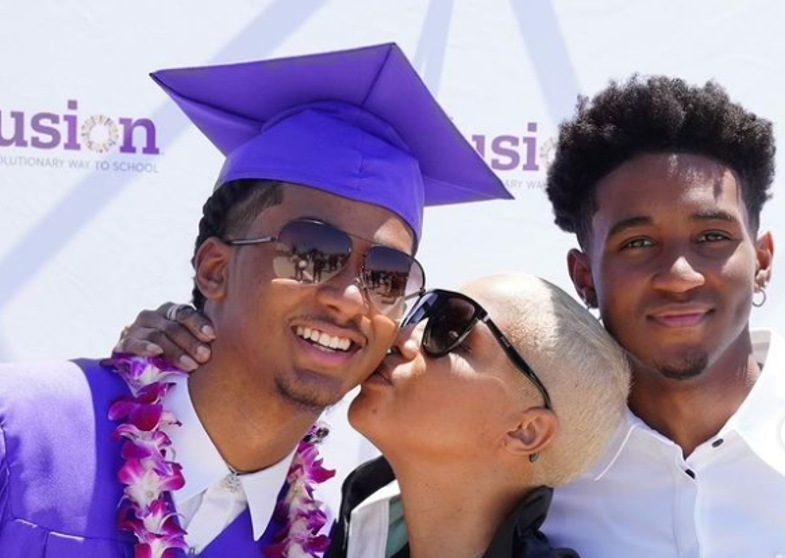
Did He Stop Being Autistic? And How?
If you remember, it was a few years ago when Deizel was just 13-years-old that Braxton found out he was no longer on the autism spectrum.
“My youngest son— everyone knows— my son Diezel suffers from—or I should say suffered from Autism,” explained Toni. “I am one of the lucky parents. Early diagnosis changes everything. I will tell you this. I will shout it from the rooftops. My son Diezel is off the spectrum. Off the spectrum being autistic. Susan Wright, who unfortunately passed from Autism Speaks, when she found out about my son and I she called me immediately and said ‘Get him in this program. Do this, do that.’ She’s been an advocate in helping me so much. I miss her already. I mean, I can’t believe she’s gone.”

“No signs of autism. He’s our social butterfly. He’s the one who plays with friends and hangs out all the time. Very, very fortunate. And I don’t like to think there’s anything wrong with our babies. I just think they learn differently.”
Can Autism Be Cured?
In Diezel’s case, the question arises again: can autism be cured? Autism is usually thought to be a lifelong condition, but a small number of children lose the core symptoms and shed the diagnosis. Some researchers are beginning to explore how common this may be, and why some children outgrow autism.
A new study found that some children correctly diagnosed with autism spectrum disorders (ASD) at an early age may lose symptoms as they grow older like Diezel. Further research may help scientists understand this change and point the way to more effective interventions.
ASD includes several related brain disorders, with symptoms ranging from mild to severe. People with ASD generally have trouble with social interactions and communication. ASD affects about 1 in every 88 children.
Optimal outcome —a term used when symptoms are lost later in life — has been documented in previous ASD studies.
According to experts at the National Institutes of Health state that most children with autism will forever have the disorder. But a handful of studies in the past three years indicate that for reasons no one understands, a minority of children, like Diezel, shed the core symptoms necessary for an autism diagnosis.
Autism specialist Lisa Shulman, who runs a large clinical autism program at Albert Einstein College of Medicine in New York City, says most of these children face residual learning or emotional problems. “We still consider these kids as having had a wonderful outcome,” she says. “But they don’t get off scot-free.” Only “the minority of the minority” breeze through each new challenge life brings them — the book reports in elementary school, the social minefields in middle school, the expectations for independence in later adolescence and adulthood.



